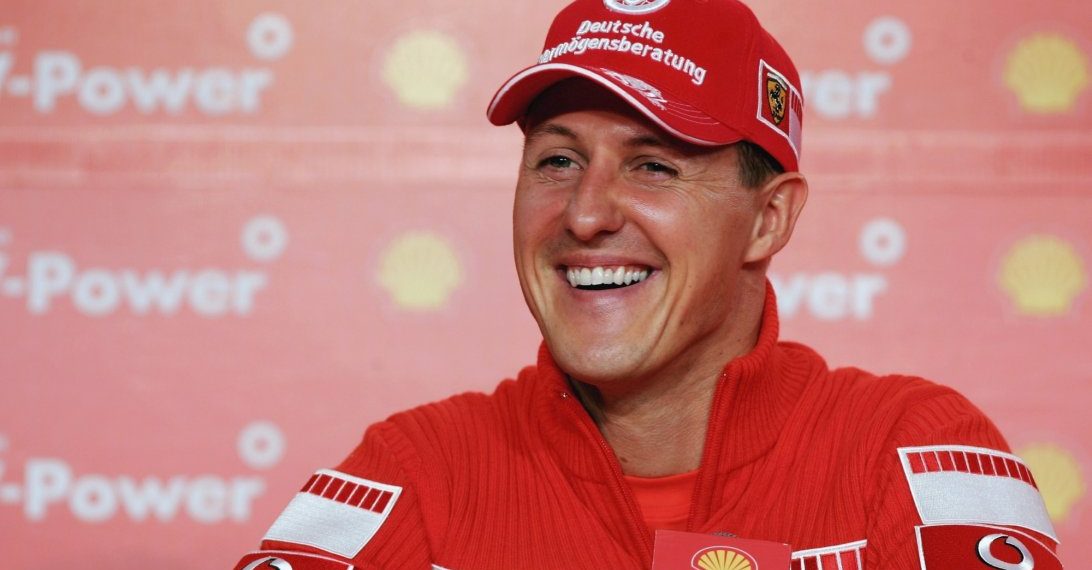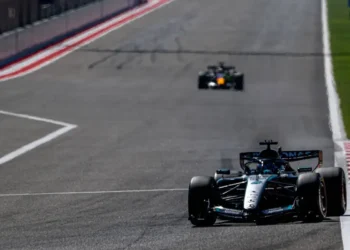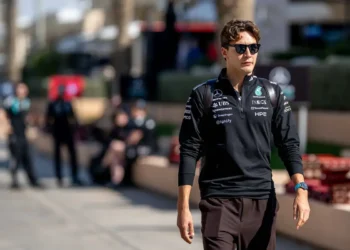Rubens Barrichello has revealed that Ferrari began enforcing team orders as early as his debut race at the 2000 Australian Grand Prix, subtly instructing him not to challenge teammate Michael Schumacher. The Brazilian driver’s revelations shed new light on the deeply orchestrated team dynamics that defined Ferrari’s dominance during Schumacher’s reign.
The shadow of team orders from the start
Barrichello’s tenure at Ferrari is remembered as much for his forced compliance as for his talent. Speaking on the Beyond the Grid podcast, the 52-year-old recounted how, even in his very first race, he was told to “drop the revs” and avoid challenging Schumacher.
“Take Australia, the very first race. I was second, but I was getting close to Michael. That was the first time I heard something on the radio that I had to drop the revs or something like this. But I was prepared for that,” said Barrichello.
The Brazilian described how Ferrari managed both drivers’ interactions with the media, handing out detailed instructions on what could and couldn’t be said.
“There are papers that come with, ‘you can say this, you cannot say that.’ People are just watching. Every time I sat in the car, though, I had the pleasure and gratitude of driving a really good car, and that paid off.”
Austria and the public outcry
Barrichello’s candid recounting revisits one of F1’s most controversial moments—the infamous 2002 Austrian Grand Prix. Despite dominating the race, Barrichello was ordered to let Schumacher pass in the final moments, surrendering victory by just 0.182 seconds.
The fallout was immediate. Schumacher faced boos on the podium, and the FIA summoned Ferrari, ultimately fining the team and drivers $333,000 for breaching podium protocol. The incident led to a ban on team orders from 2003 to 2011.
Despite this public humiliation, Barrichello remained loyal to Ferrari, helping secure consecutive Constructors’ Championships from 2001 to 2004. Reflecting on those years, he admitted that the pressure of adhering to such a rigid hierarchy often overshadowed his own racing instincts.
A career of highs, lows, and “what ifs”
Barrichello’s career stats—20 wins, 55 podiums, and 12 pole positions—highlight his immense talent, yet his legacy remains intertwined with the dominance of Schumacher.
“Would I have done anything different? We would have made some changes along the way. But I have gratitude for everything that happened, even times like at Ferrari that were tough,” he reflected.
He also acknowledged the internal struggle of fighting for his right to individuality within the team:
“I would spend an hour with Ross [Brawn] and Jean Todt saying: ‘Look, this shouldn’t be done like this.’ You need to let me be myself.”
Schumacher vs. Barrichello: A debate that lingers
While Schumacher is widely regarded as one of the greatest F1 drivers in history, Barrichello posed a thought-provoking question:
“Was Schumacher better than me? I think so. But 51-49? 70-30? I don’t know. We will never know, because it was something that was not supposed to let you free.”
The legacy of a “number two” driver
Barrichello’s years at Ferrari serve as a reminder of the sacrifices made by teammates in the shadow of legendary champions. Despite the constraints, Barrichello’s contribution to Ferrari’s golden era is undeniable. His raw honesty underscores the complexities of being part of a team built around one driver.
As the debate around team orders continues to resurface in modern F1, Barrichello’s story stands as a poignant chapter in the sport’s history—one of extraordinary talent, unyielding loyalty, and the enduring question of “what might have been.”










